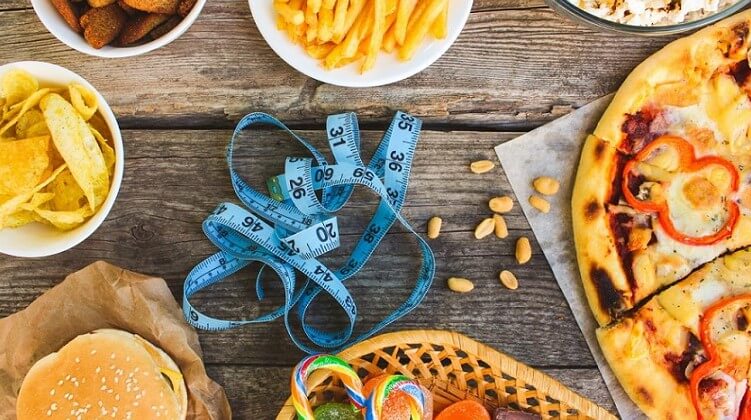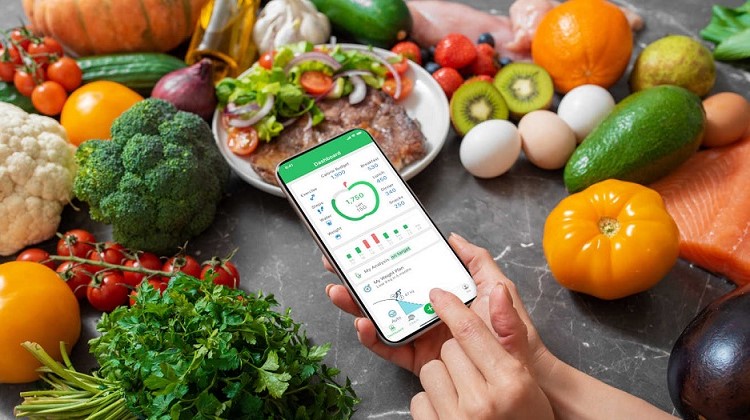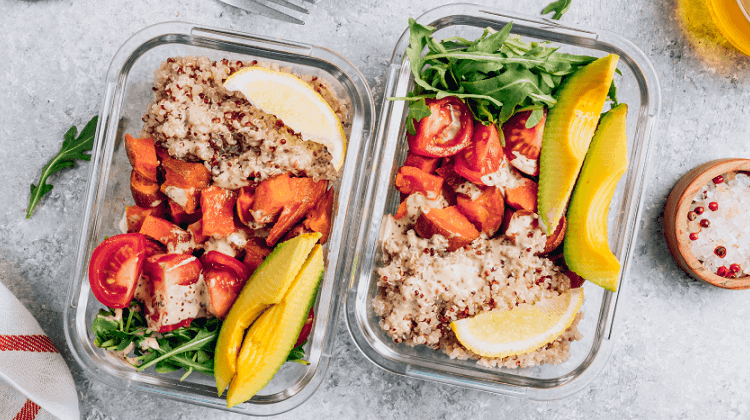If there is one thing that you have to take really seriously when starting a training program for weight loss, it is tracking your food intake.
This is just as important as having a dietary or nutrition plan, engaging in a weight or strength training program and performing cardio workouts to lose weight.
You need to know what foods to eat in a caloric deficit consideration while planning ahead for a cutting program.
For some people food intake monitoring may seem like a chore. While this was probably true in the old days, the same cannot be said today, as you can now use an app to track food intake which is a welcomed relief, as it provides convenience, precision, and time management benefits, allowing you to focus solely on your training.
In this post, you will get to know the benefits of tracking food intake for weight loss. You will also get to know those methods that you could apply today to effectively engage in food intake monitoring, as well as useful tips for effectively tracking your food intake.
Benefits of Monitoring Food and Nutrition Intake
People have different reasons for losing body weight. Some have excess full body fat that they want to shed while others may be looking to tone their body by getting rid of fat deposits in specific parts of their body like their arm, abdomen, love handles, buttocks, and thighs.
But whatever your immediate reason for wanting to shed excess body weight may be, it is vitally important to engage in food intake monitoring, as it will eventually help you in being able to properly evaluate your weight loss progress in both the short and long run.
While there are indeed many advantages to tracking your food intake, arguably the three most important benefits of your food intake monitoring are:
#1. A Better Understanding of Your Eating Habits
Without tracking your food intake, you are less likely to be fully aware of your eating habits. This means that you are unlikely to know your daily caloric count, the type of foods you consume on a day-to-day basis, and if the foods you eat are right for your cutting program.
You will also be unaware of whether or not you are overeating or eating less than your actual daily requirement. In other words, you will literally be going through your cutting program blind, as you will be less than strategic in your dietary and nutrition planning.
However, by tracking your food intake through the use of a simple food journal or app to track food intake, you will be more aware of your daily calories, the food sources providing your macronutrient needs, the caloric adequacy or otherwise of your daily meals, and whether you should increase or decrease your daily consumption in relation to the volume or intensity of your training schedule.
Knowledge is indeed power, and keeping track of your food intake will indeed put you in the driver’s seat towards achieving your nutrition plan and dietary goals.
#2. Improved Consistency through Accountability
Self accountability is the only way you can ensure consistency in your daily food intake. By tracking your food intake, you will be holding yourself fully accountable for every decision and action taken to shed fat and lose weight through a regulated control of your eating habits. You will effectively be in charge of your weight loss destiny.
#3. Guaranteed Precision in Daily Calorie Count
Whether you are keeping a food journal or using a food tracking app, you will be able to keep tabs of your daily calorie count. The calorie count of each meal that you consume in the day would be known to you which helps you in being confident of knowing what your total daily calories would be.
Some people feel that cutting down on the number of meals they have in a day is enough to ensure that they do not consume excess calories.
However, they often fail to take into account the calorie count for each of the meals that they do decide to have in a day.
They also fail to take into account the calorie count for the snacks that they may knowingly or unknowingly consume during the course of a day.
Every meal even if it is just a snack, should be factored into your overall daily calorie count. The best way of ensuring this is through tracking your food intake in a more scientific, measured and precise manner.
So whether you have three meals or six meals in a day, you are fully aware of the exact calories consumed from each meal rather than taking a gamble by guessing that eating less meals would equate to having enough calories for your cutting training program.
You could reduce your daily meal count, but still be consuming more calories than if you had more meals in a day. To know for sure, you will need to engage in food intake monitoring, preferably with an app.

Effective Methods for Tracking Food Intake for Weight Loss
There are different ways that you can effectively track your food intake. However, these three methods for monitoring food and nutrition intake should help you in effectively losing weight.
#1. Keep a Food Journal
You can simply keep a daily food journal entry as a way of monitoring your day-to-day food intake. You just need a notepad and pen to enter a daily log. You will be able to track your daily meals, as well as calorie count this way.
You can also enter your body weight information in the journal. Keeping a log will help you to know if you need to increase your calorie count or taper it to suit your training needs. However, many people find keeping a food journal to be laborious.
#2. Using an App to Track Food Intake
This is a more trendy means of tracking your food intake. By using a food tracking app, you will be able to avoid the inconvenience of having to write down your daily meals and calorie count in a journal entry.
These days an app for tracking your food intake can make your life a whole lot easier with the advanced AI technology available, everything from your daily macro and micronutrient requirements, food and training preferences can be delivered to you daily through an app with a user-friendly interface and functionality.
#3. Maintaining a Mental Log
This is perhaps the most demanding and arguably the most unreliable way of tracking your food intake. Not everyone has the mental capacity to remember each meal and calorie count over a period of time.
However, there are individuals that do prefer this method of food intake tracking. If you think your mind is sharp enough to keep a mental log of your food intake, then by all means try this method out.

Tips for Efficiently Tracking Your Food Intake
As we round up this article on the importance of tracking your food intake, it is worthwhile adding a few tips for efficiently tracking food intake for weight loss.
#1. Consistency is Gold!
Without a doubt consistency is the key to successfully tracking your food intake for weight loss. You should always make it a point of duty to enter a daily log either manually or electronically.
This can be done before the start of the day, at different intervals during the day, or at the end of a hectic training regime. Whatever works for you is fine.
#2. Food Tracking Apps make Life a Whole less Stressful
The world is evolving and it’s always best to evolve with the world and take advantage of technologies that would help save you time, effort, and even money.
Food tracking apps are such a reliable technology that can help you a lot.
Many of these apps offer a number of useful metrics, such as; BMR, BMI, Bone Mass, Muscle, and Water, in addition to food tracking data that will help you in knowing your real-time progress in quick time.
#3. Planning Always Works
You should always have the mindset of planning way ahead of your day. You could even plan an entire weekly meal plan before the start of the week in question.
There should be no limit to the scale of your planning. The better prepared you are, the more likely you are to succeed in your food tracking habits for weight loss.
#4. The Devil is in the Detail
Have you ever heard the phrase: ‘the devil is in the detail’?! Well, this is true, especially when it comes to tracking your food i take for weight loss. You may be wondering why you are not shedding fat or losing weight as quickly as you anticipate.
The issue may lie in your daily calorie count or the type of food source.and snacks you consume. So always try as much as possible to be detailed in your manual or electronic food journal entry.
This will help, particularly if or when you are confused by why you are not seeing results. Your detailed journal could be observed by an expert who can then point out where the problems may lie and help you in your journey to losing weight.

Conclusion
Losing weight is never easy. However,if you combine a well-structured regular training program with excellent food monitoring habits by keeping a journal or using an app for tracking your food intake, then you are more likely to succeed than fail.
All you need to do is make sure that you are consistent with your food tracking habits, a strategic planner and stickler for details. If you do, then you will find that losing weight is not as hard as you might have thought.
To make your life a bit less stressful, at Anabolic Coach, we offer you free coaching to help you succeed in your cutting program today.

